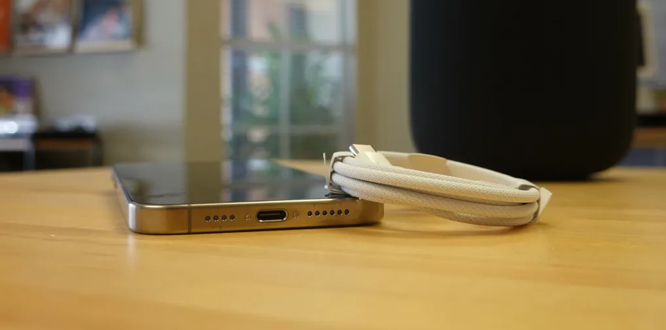The iPhone 15 has USB-C, a move largely due to impending legislation in the European Union requiring smartphones and other products to use a common charger. Apple also might soon be forced to open the iPhone up to third-party app stores and sideloading thanks to the Digital Markets Act in the EU.
In new comments today, EU industry chief Thierry Breton reiterated that Apple must “open up its gates to competitors.”
“This
For a quick refresher, the DMA is a wide-ranging piece of antitrust legislation aimed at tech companies. Under the law, Apple must make changes to iOS, the App Store, and Safari that improve the interoperability of those platforms with other ecosystems. As the legislation is currently written, Apple will have until March 5 next year to comply.
As reported by Reuters, Breton made the comments after a meeting with Cook in Brussels this week. Breton said that following the iPhone 15’s switch to USB-C, Apple must now open up things like the App Store to its competitors.
“The next job for Apple and other Big Tech, under the DMA is to open up its gates to competitors,” Breton said.
“Be it the electronic wallet, browsers or app stores, consumers using an Apple iPhone should be able to benefit from competitive services by a range of providers.”
Apple’s counterargument has been that opening up the iPhone in these ways will significantly compromise user security and privacy. Breton, however, doesn’t buy this argument. “EU regulation fosters innovation, without compromising on security and privacy,” he said this week.
While iOS 17 currently doesn’t include any support for third-party app stores or sideloading, Apple VP Craig Federighi said following WWDC in June that Apple is “working with the EU” to ensure compliance.
The expectation is that Apple will do whatever it can to limit the availability of sideloading and third-party app stores.
The company could also be forced to open iMessage up to other messaging platforms, but that’s still being debated.

